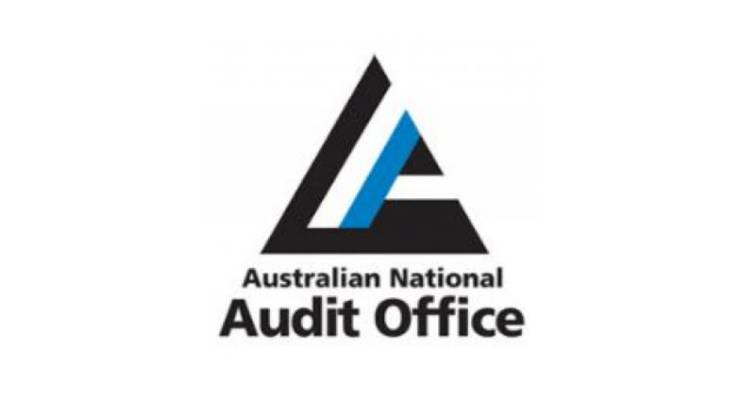
Public servants and even the private sector can expect more intensive scrutiny from the Australian National Audit Office (ANAO) as the independent agency expands its focus, drops the bureaucratese and starts taking aim at departments that keep repeating the same mistakes.
The ANAO, now over 110 years old, has long been one the most feared agencies in Canberra. Now, with expanded powers, and headed by an Auditor-General keen to take on a broader remit, the high profile the agency has garnered in recent times is likely to continue.
The agency has been in the spotlight over the last two years for two massive blows struck against the Department of Immigration over its awarding and management of billion-dollar contracts for offshore detention. The ANAO delivered two reports that revealed deep-seated problems within a department that will become a Homeland Security-style super-agency. The agency also released a damning report on the Abbott government’s handling of the Commonwealth contribution to the New South Wales WestConnex projects.
[Billion-dollar blindspot: Immigration’s massive failure on Transfield]
But under Auditor-General Grant Hehir, now two years into a decade-long appointment, the auditors are likely to find further controversy. Hehir, unusually, came into the role in 2015 from outside the Australian public service: he was Auditor-General in NSW, but before that was a top public servant in Victoria, including secretary of Treasury and Finance. And his outsider’s perspective, and his experience in both financial administration and economic policy, are informing the office’s subtle change in direction.
Traditionally, the ANAO’s performance audits — it aims to do around 50 a year, or about one a week — have been focused on compliance by departments with legislation, public service regulations and procedures, procurement rules and best-practice approaches in areas like record-keeping. That’s been more than enough to produce some political earthquakes, such as the regional rorts audit that exploded at the start of the 2007 election campaign, or the 2001 fuel excise audit that rocked the Howard government and led to 15 years of revenue losses for the Commonwealth.
But the ANAO is now looking to expand its scope to focus on the four Es of its legislation: economy, efficiency, effectiveness and ethics. Earlier this year, for the first time, it issued a draft work plan for 2017-18 and invited comment. The finalised program reflects a decidedly diverse range of topics. The tendency of governments to give the Australian Tax Office extra funding and then book large increases in tax revenue is up for examination, along with its IT debacles of late 2016 and early 2017 — and how effective the ATO has been at deterring aggressive tax planning. The management of national parks will be examined, as will the ABC’s handling of complaints. Human Services’ coming, massive overhaul of its IT systems will be the subject of a series of audits; the Australian Transport Safety Bureau’s safety investigation work will be examined to see if its efficiency can be improved; it will look at how well the government monitors the performance of state and territory governments in spending special-purpose payments.
There will also be a number of cross-entity audits on particular themes: the crackdown on phoenixing, spending under the National Plan to Reduce Violence Against Women and their Children, how efficient Human Services is at providing services for other agencies. And, with the encouragement of the parliamentary committee that oversees the ANAO, the Joint Committee of Public Accounts and Audit, there are audits aimed at following up on the recommendations of previous audits, reflecting the ANAO’s frustration that the same problems keep being identified both across agencies and over time within the same agencies. The public service’s poor record-keeping will be examined; there’ll be another cybersecurity review; the extent to which previous ANAO audit recommendations have been complied with will also be examined.
Some of these will take the auditors away from the well-trodden paths of process to look at the real-world effectiveness of programs and policies, something that requires a different set of skills than ANAO staff traditionally have. While Hehir has moved the office’s about 150 performance audit staff away from the traditional structure of portfolio-based specialist teams, outside expertise is being brought in to help with efficiency-based audits — with ANAO officers tasked to shadow them and develop their own skills.
[Audit slams govt’s ‘risky and inefficient’ handling of detention centres]
And, courtesy of a legislative change by Labor, the ANAO is also keen to follow the money into the private sector. A 2011 amendment gave it the power to conduct performance audits of “Commonwealth partners” — bodies that had received Commonwealth funding to carry out a Commonwealth purpose, including state and territory bodies and private companies, which may help slow the increasingly popular government approach of trying to outsource political responsibility and the potential for scrutiny of controversial issues to the private sector.
What’s already caused ructions with departments is Hehir’s desire to move away from the ANAO’s more indirect, bureaucratic couching of its findings to be sharper and shorter. Departments like Immigration haven’t been happy to have their shortcomings revealed in something approaching plain English; last year’s report on Immigration’s colossal failures in relation to offshore processing contracts stated bluntly that the department had “fallen well short of effective procurement practice” and the ANAO had “identified serious and persistent deficiencies”.
The days of subtle statements that agencies “did not appear to fully demonstrate best practice” are over.
Next: how the auditors get the goods on bureaucrats








A situation devoutly to be wished for – let’s hope that you are correct.
Breath not being held.